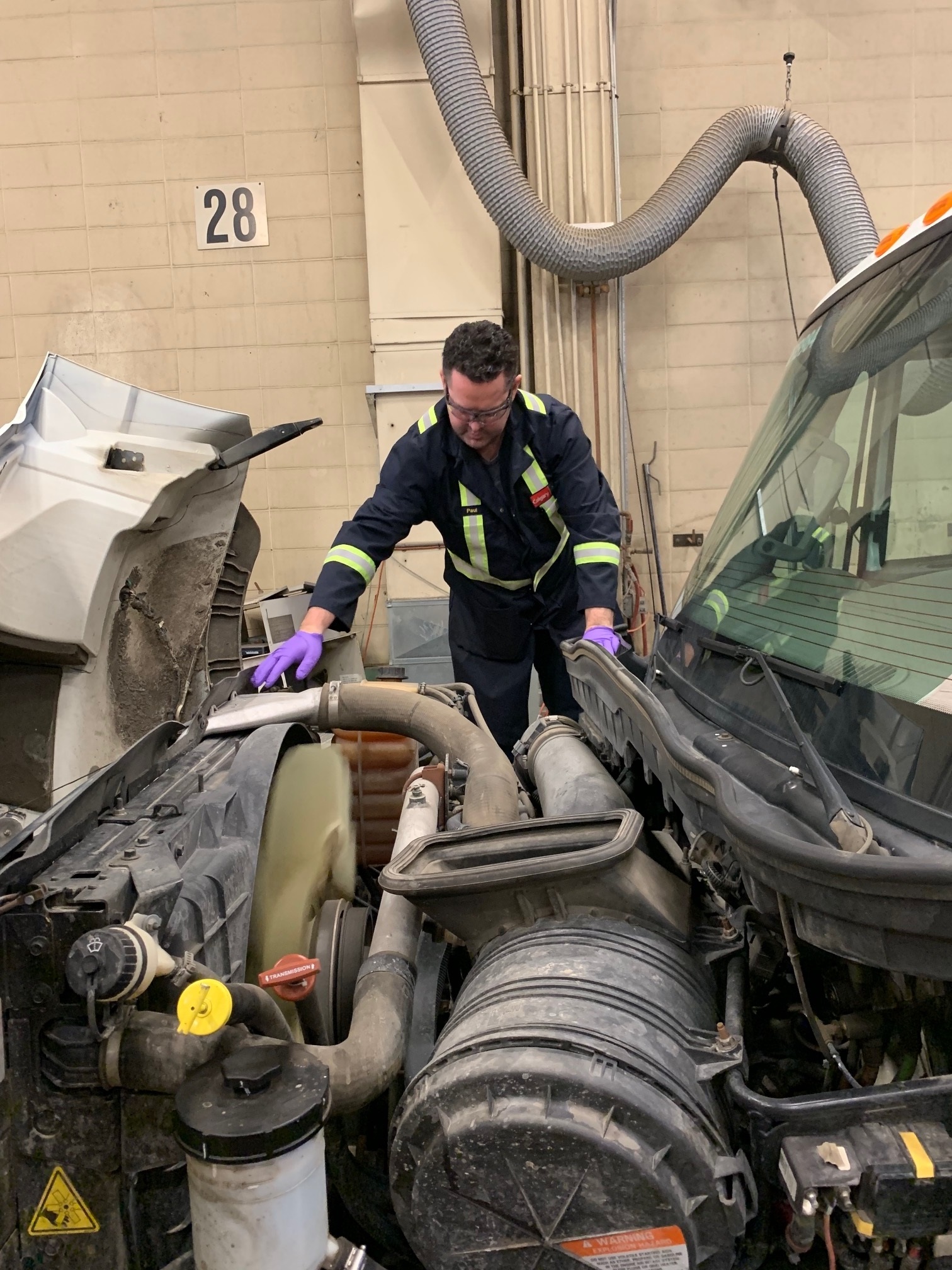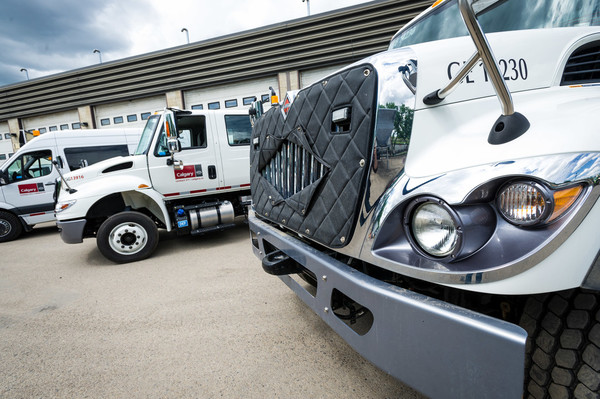Fleet Management plan and budget
Fleet Management enables City Services and external partners by providing reliable and efficient vehicles and equipment that maximize safety, environmental sustainability, and minimize lifecycle costs. Fleet Management is responsible for green and safe driver training, vehicle and equipment maintenance, fabrication and repair, asset management, fuel management, and green fleet initiatives.
Fleet Management provides a range of vehicles and equipment from sanders to refuse trucks to snowplows and construction equipment. These vehicles and equipment enhance mobility of staff, act as mobile offices, and enable the delivery of services to Calgarians.
Our customers
- City Services including Mobility, Waste & Recycling Services, Water Services, Parks & Open Spaces and Recreation & Social Programs
- Light-duty vehicles for Calgary Transit and Calgary Fire
- Alberta Health Services
- Government agencies
- External utilities
Our partners
- Supply Management
- Climate & Environment
- Corporate Security & Safety
- Information Technology
- Facilities
- Collaboration, Analytics & Innovation
- Finance
- Law
- Corporate Planning & Performance
Value to Calgarians
- provides vehicles, equipment, and manufactured goods along with training for their use to Calgarians to perform front line services
- provides expertise to ensure reliable assets, responsive services and safe operations
- supports the continuity and mobility of services through innovative solutions
- provides green driver training and green fleet solutions to contribute to The City's economic and climate resiliency
What we deliver
- Professional lifecycle asset management for vehicles and equipment from planning and acquisition to end-of-life management.
- Fabricated items, maintenance, collision repairs and investigation, roadside inspections, legislative, regulatory, and specialized training for City operators.
Budget breakdown
Operating and capital budgets explained
The budgets you see here are expenditures net of recoveries.
The City develops two budgets to create impact aligned with Council’s Strategic Direction:
- The four-year (2023-2026) operating plans and budgets
- The five-year (2023-2027+) capital plans and budgets
The operating budget includes revenues, recoveries and spending related to ongoing operations. These include:
- Salaries, wages and benefits.
- Day to day programs, maintenance and services.
- Administration costs (e.g., insurance).
- Fuel
- Utilities
- Capital financing costs.
The City's total net operating budget is zero. This means we budget to collect the revenue needed to deliver services to Calgarians — no more, no less. We collect this revenue through property taxes and other sources.
The capital budget pays for long-lived assets. These provide the foundation for the services Calgarians rely on. They include:
- Maintenance of current infrastructure (e.g., bridges, buildings and playgrounds).
- Upgrades to existing community infrastructure.
- New infrastructure to provide services in areas that are underserved (e.g., Green Line).
- New infrastructure for growing areas of the city.
Learn more about our 2023-2026 Service Plans and Budgets.
See how the budget has been adjusted since November 2022
Measuring performance
We are measuring our performance in five areas. Each value is the goal we expect to reach by 2026.

What we've heard
Fleet Management promotes two-way dialogue with its customers to ensure awareness and understanding of service needs. Fleet Management relies on customer forums, open houses, steering committees, and daily interactions between Customer Account Coordinators and customers to improve satisfaction levels and collect feedback.
Engagement shows customers value responsiveness, availability, safety, transparency, and affordability, along with innovative and cost-effective solutions that support their service needs. Fleet Management combines customer feedback with telematics to provide enhanced insights, reporting and real-time information to improve safety, customer satisfaction, transparency, and ensure services are resilient and responsive.
What we're watching
- The recruitment and retention of skilled trade workers is an ongoing challenge.
- Paired with rising costs, inflation, demand for new technologies and supply chain constraints these challenges may disrupt operations and ability to be cost-effective.
- We are watching technological trends including artificial intelligence, autonomous vehicles, and advancements in analytics that have the potential to increase efficiency and right-size fleets.
- The accelerated pace of electric vehicle adoption poses an opportunity to reduce fuel consumption, emissions and maintenance costs. These benefits are balanced by the cost to replace existing vehicles and install electric charging infrastructure.
- The new dynamic Carrier Profile R-Factor threshold can result in additional monitoring, service delivery disruption and increased liability.
- Aging infrastructure and space challenges is a major constraint for operations. A proactive approach is required to get ahead of service impacts and improve safety.

Our initiatives
What we plan to do
We will reduce the environmental impact of The City's fleet while implementing initiatives that will improve customer safety and service delivery.
How we're going to get there
- Reduce the environmental impact of The City's fleet and contribute to achieve corporate greenhouse gas emissions reduction targets by implementing the Corporate Green Fleet Strategy.
- Improve safety and business continuity by investing in critical facility and equipment lifecycle upgrades.
- Engage employees to be actively involved in maintaining a safe workplace through participation in safety governance committees, implementation of safety programs and performance improvement.
- Reduce liability to The City and citizens by investing in telematics and critical technology infrastructure that will improve vehicle safety and driver behaviour.
- Improve vehicle utilization and maximize the use of City-owned vehicles and equipment by advancing Flex Fleet, The City's corporate car share program.

